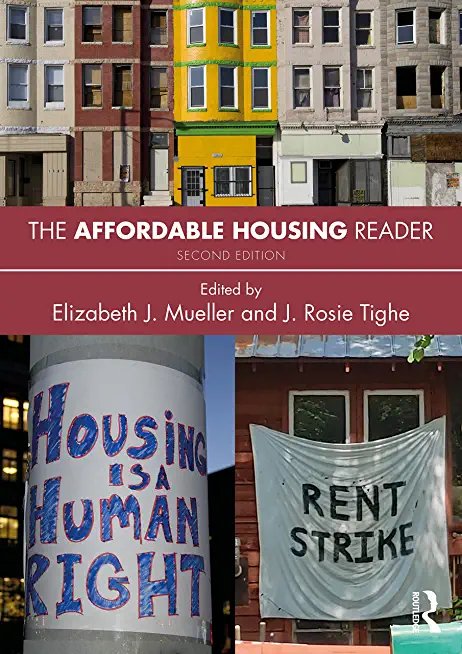
This second edition of The Affordable Housing Reader provides context for current discussions surrounding housing policy, emphasizing the values and assumptions underlying debates over strategies for ameliorating housing problems experienced by low-income residents and communities of color.
The authors highlighted in this updated volume address themes central to housing as an area of social policy and to understanding its particular meaning in the United States. These include the long history of racial exclusion and the role that public policy has played in racializing access to decent housing and well-serviced neighborhoods; the tension between the economic and social goals of housing policy; and the role that housing plays in various aspects of the lives of low- and moderate-income residents. Scholarship and the COVID-19 pandemic are raising awareness of the link between access to adequate housing and other rights and opportunities. This timely reader focuses attention on the results of past efforts and on the urgency of reframing the conversation.
It is both an exciting time to teach students about the evolution of United States' housing policy and a challenging time to discuss what policymakers or practitioners can do to effect positive change. This reader is aimed at students, professors, researchers, and professionals of housing policy, public policy, and city planning.
member goods
listens & views

BEST OF BRITISH JAZZ FROM ...
by BEST OF BRITISH JAZZ FROM BBC JAZZ CLUB 9 / VAR
COMPACT DISCout of stock
$13.99






